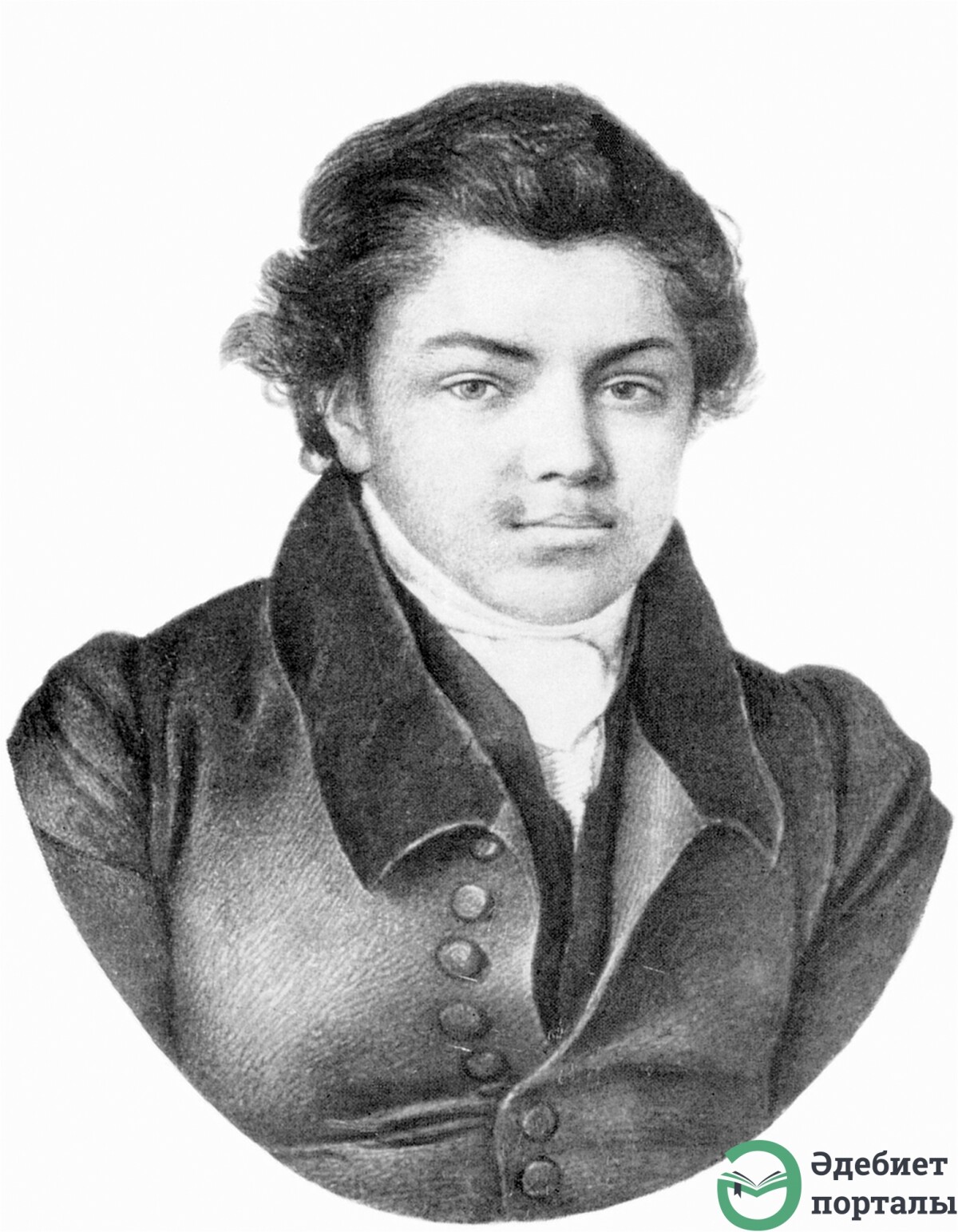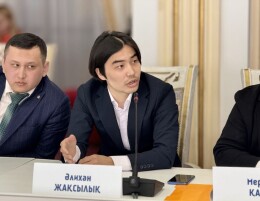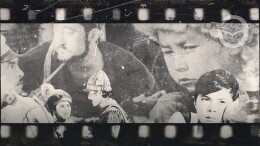
- March 16, 1803, Simbirsk - January 7, 1847, Moscow) - Russian poet of the era of romanticism, one of the brightest representatives of the golden age of Russian poetry, who called himself "the poet of joy and hops," and also "the poet of revelry and freedom." At the end of his life he was close to the Slavophiles. He lived 43 years.
- He was born in a landlord family in Simbirsk; his father was Ensign Mikhail Petrovich Yazikov (1774-1836), his mother Ekaterina Alexandrovna Yermolova (1777-1831). Sister Nicholas Catherine later became the wife of the philosopher and poet AS Khomiakov. In the 12th year Nicholas was given to the Institute of Mining Engineers in St. Petersburg, and at the end of the course he entered the engineering building; But without feeling the call to study mathematics and taking a great interest in poetry, decided, on the advice of the professor of literature at the University of Dorpat, the famous writer A. Voeikov, to go to this university (1820). In 1819 he made his debut in the press (on pages of the "Competitor of Enlightenment and Beneficence").
- Studentship - The study at the ethico-political department of the Faculty of Philosophy in Dorpat lasted 7 years, from 1822 to 1829. The fascination with "traditional for German students, feasts and cupids" was the main reason that the students did not have time to finish the university course. In his spare time from school, studying and studying during his free time. The bright and festive world of young vacillation and freedom-loving is the new solemn dithyrambic style of "light poetry". His anacreon poems for the glory of wine and fun were soon noticed by Zhukovsky. Delvig was looking for his poems for his "Northern Flowers", and Pushkin invited to his Mikhailovsky. From Derpt only for a short time to Moscow and Petersburg. In 1826 he stayed in the Pskov province, in Trigorskoye near Praskovia Osipova, mother of A. Wolf. Here he met Pushkin, who served the link. At that time, the famous poem Trigorskoye was written. Afterwards, I spoke with pleasure about this trip in a heartfelt verse message to Arina Rodionovna.
- In 1829, having accumulated debts in Dorpat, Yazykov moved to Moscow, to the house of his friends Yelagin, supposedly to prepare for examinations at the University of Kazan, but in the early 1830s he moved to his Simbirsk village, Yazykov, where he lived for several years, "Enjoying," as he himself said, "poetic laziness." In September 1833, Pushkin traveled to Orenburg and back.

- During his stay in the village of Yazykov through his future son-in-law (husband of his sister) AS Khomyakova and D.A. Valuev's nephew begins to approach the Slavophils. In 1831, together with P. V. Kireevsky is taken for collecting materials on Russian folk poetry. Also during this period was carried away by homeopathy, began to translate from German works on this subject.
- "Health, undermined by Derpt excesses, began to change him very early". In the autumn of 1836 with renewed resilience, the sicknesses that had been weakening, such as tapeworm, spinal cord disease (neurosyphilis), etc., began to revive one time; they began to progress so quickly that the poet could not walk straight on and in the spring of the following year he was forced to leave for treatment in Moscow, Where he was accompanied by P. V. Kireevsky. The famous Inozemtsev doctor, having examined Yazykov, advised him to go abroad as soon as possible. Kireevsky accompanied him first to Marienbad, then to Hanau, Kreutnach and Gastein. In Hanau, Yazikov got close to Gogol, who in 1842 took him to Venice and Rome. Gogol called Yazykov his favorite poet: "The name of languages was not in vain. He speaks his language, like an Arab with his wild horse, and even as it boasts of his power". "The earthquake" language great writer called "the best Russian poem" . Their friendship was at the beginning hot and sincere, although it was expressed primarily in the sympathetic respect of each of them to the talent of the other, characteristic of both of them religiousness and similar bodily ailments. Because of small everyday squabbles, they broke up, but continued to correspond.
- In 1843, yearning for his homeland Languages returned to Moscow in a completely hopeless state. Without leaving his apartment, he slowly died away; the only entertainment was for him arranged for them in his weekly meetings of familiar writers. Under the influence of his friends, finally turning to the positions of Slavophilism, he criticized the Westerners in a rather rude manner, and in 1844 he attacked them with the abusive message "To not ours" (listed on the lists, published in 1871), in which all members of the Western circle were announced Enemies of the fatherland. In response, Nekrasov in verse, and Belinsky and Herzen in prose sharply condemned Yazykov, and the label of the reactionary attached to him.
- Yazykov died on December 26, 1846, single and was buried in the Danilov Monastery under one tomb with his nephew D.A .Valuyev. Not far from his grave, Gogol and Khomyakov were later buried. In the 1930s, all three were reburied at the Novodevichye Cemetery.
- After the death of Nikolai Mikhailovich Yazykov, 2 325 books from his personal library were transferred by his brothers Peter and Alexander to the Karamzin Public Library in Simbirsk.
- Publications:
 Complete collection of poems. Ed., Entry. Article and commentary by M. K. Azadovsky. Moscow - Leningrad: Academia, 1934.
Complete collection of poems. Ed., Entry. Article and commentary by M. K. Azadovsky. Moscow - Leningrad: Academia, 1934.
Collection of poems. Ingress. Article, ed. And the notes of MK Azadovsky. Leningrad: Soviet writer, 1948 (Library of the poet., The Big Series).
Poems. Fairy tales. Poems. Dramatic scenes. Letters. Compilation, preparation of the text, entry. Article and notes ID Glickman. Moscow - Leningrad: Goslitizdat, 1959.
Complete collection of poems. Ingress. Article, preparation of the text and notes K. K. Buchmeyer. Moscow - Leningrad: Soviet writer, 1964 (Library of the poet., The Big Series).
As Yazykov wrote himself:
... These verses did the work, divided what was not supposed to be together, separated the sheep from the goats, the big benefit!.. Hardly you can call the action of the spirit of the party, whatever it is, against those who want to prove that they have Not only the right, but also the duty to despise the Russian people, and to prove by the fact that there is much corruption in it, whereas this spoil gave birth, brought up and still gives birth and brings up exactly what they call their conviction!
adebiportal.kz - Literary Portal












